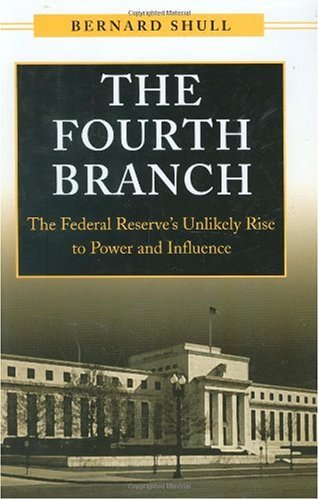

Most ebook files are in PDF format, so you can easily read them using various software such as Foxit Reader or directly on the Google Chrome browser.
Some ebook files are released by publishers in other formats such as .awz, .mobi, .epub, .fb2, etc. You may need to install specific software to read these formats on mobile/PC, such as Calibre.
Please read the tutorial at this link: https://ebookbell.com/faq
We offer FREE conversion to the popular formats you request; however, this may take some time. Therefore, right after payment, please email us, and we will try to provide the service as quickly as possible.
For some exceptional file formats or broken links (if any), please refrain from opening any disputes. Instead, email us first, and we will try to assist within a maximum of 6 hours.
EbookBell Team

5.0
108 reviewsShrouded in mystery, managed behind closed doors, and the subject of both awe and derision, the Federal Reserve is commonly referred to as the fourth branch of our federal government, with wide-ranging influence over monetary policy, and by extension, banking, price levels, employment rates, and economic growth, income, and wealth. Bernard Shull traces the fascinating and improbable history of this institution from its establishment by an Act of Congress in 1913 to the present day. His careful analysis reveals a paradoxical phenomenon: focusing on three periods of economic stress (the inflation and deflation following World War I, the stock market crash of 1929 and subsequent Depression, and the stagflation and volatility of the 1970s and 1980s), Shull argues that despite convincing evidence that the Fed contributed to these crises, it has consistently emerged from each more powerful and influential than before. Setting the current profile of the Fed against its evolutionary context, The Fourth Branch sheds new light on the Fed's character and its impact on our economic, political, and cultural history.
In many ways, the story of the Fed is the classic American epic: turning adversity into opportunity, responding to threat by innovating and adapting. Even today, under attack by liberals and conservatives alike—in the wake of the stock market bubble, economic recession, and rampant job loss—the Fed is poised to remain strong long after the tenure of legendary Chairman Alan Greenspan. Setting the current profile of the Fed against its evolutionary context, The Fourth Branch sheds new light on the Fed's character and its impact on our economic, political, and cultural history.